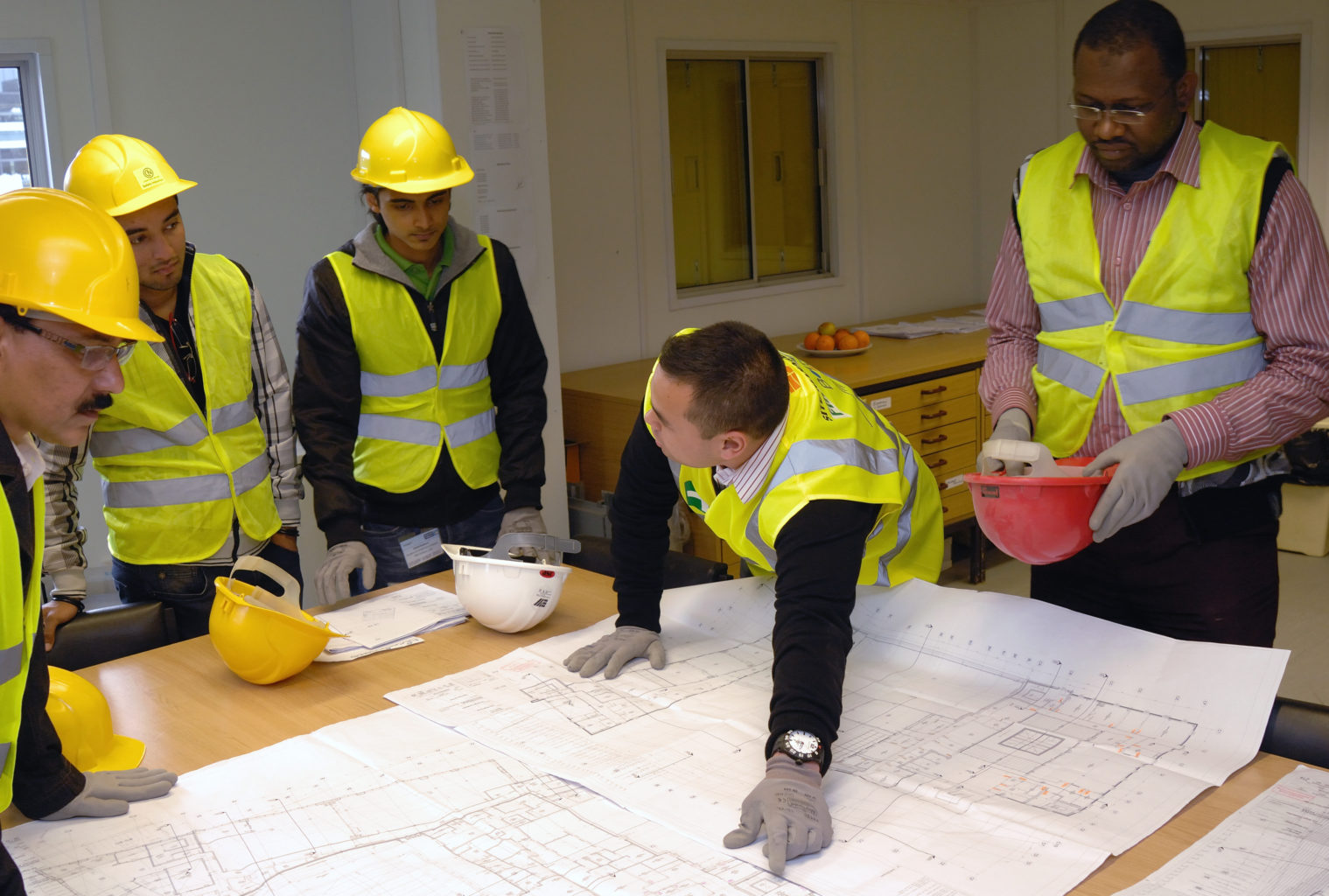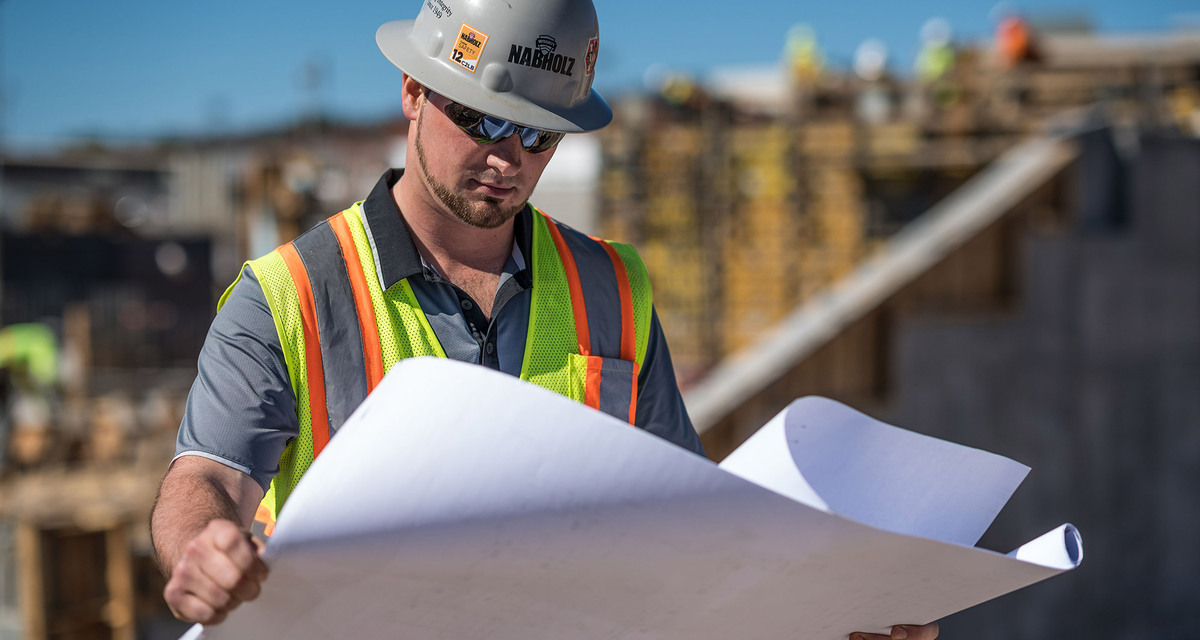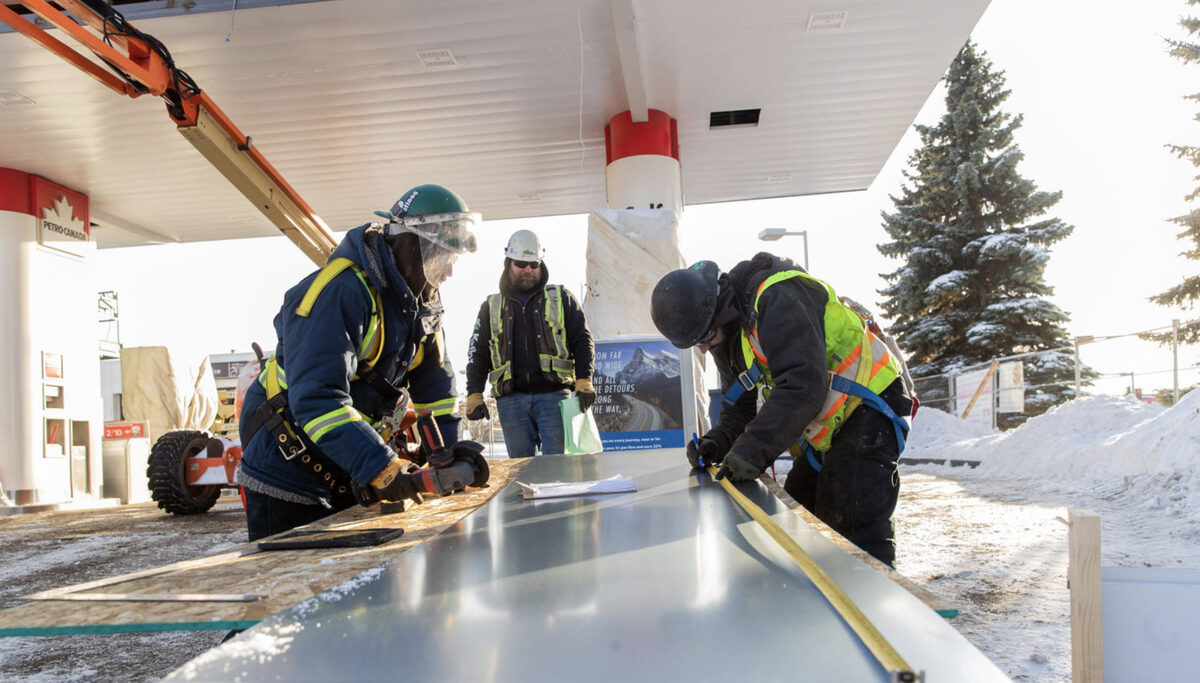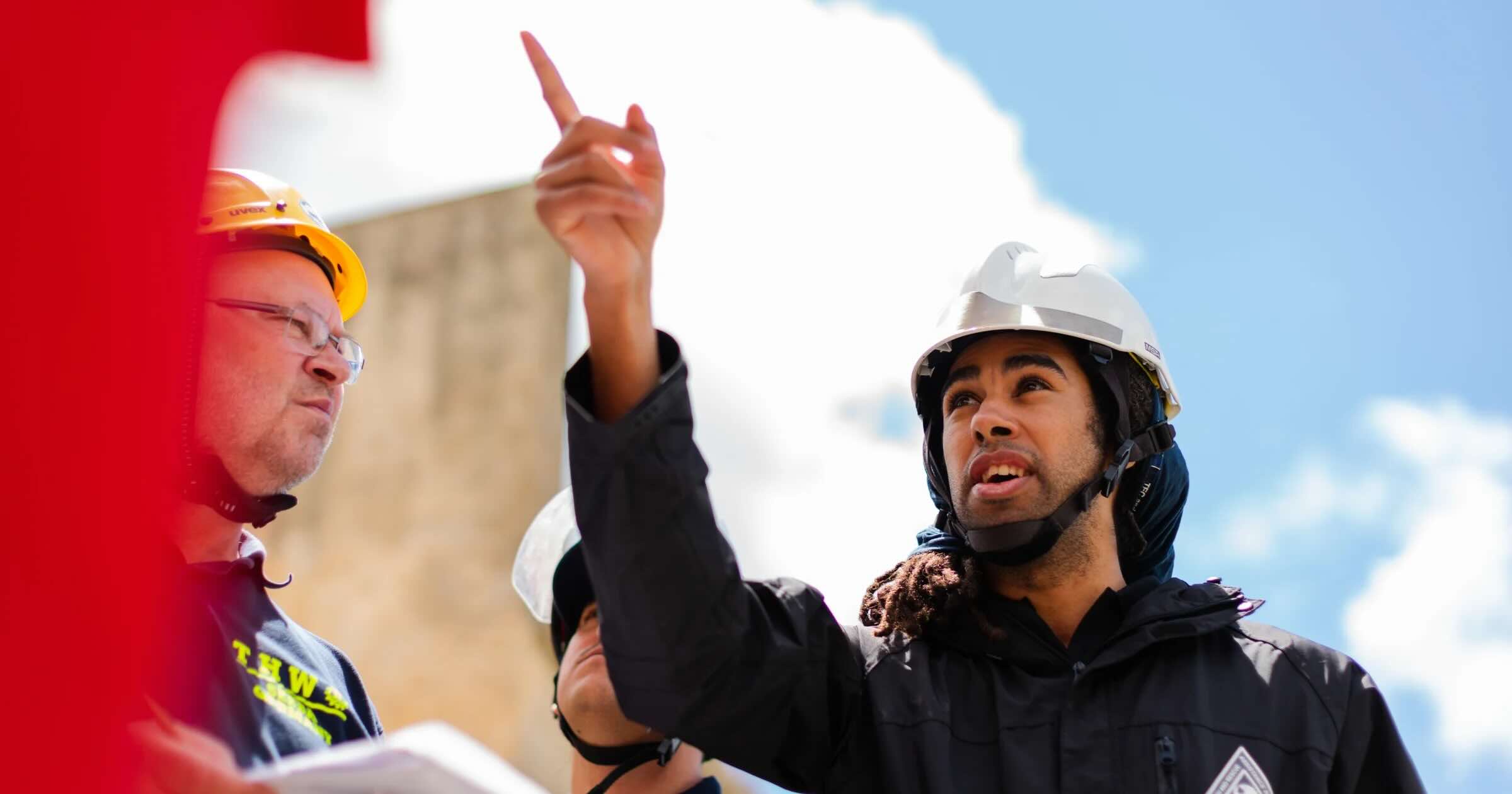Home>diy>Building & Construction>How Do You Become A Construction Project Manager


Building & Construction
How Do You Become A Construction Project Manager
Modified: January 24, 2024
Learn how to become a construction project manager in the building construction industry. Gain the skills and knowledge needed to excel in this rewarding career path.
(Many of the links in this article redirect to a specific reviewed product. Your purchase of these products through affiliate links helps to generate commission for Storables.com, at no extra cost. Learn more)
Introduction
Welcome to the exciting world of construction project management! If you have a passion for building and a desire to lead, then becoming a construction project manager might be the perfect career path for you. As a construction project manager, you will oversee the planning, execution, and successful completion of construction projects, ensuring that they are delivered on time, within budget, and meet the required quality standards.
In this article, we will explore the necessary education, qualifications, skills, and experiences needed to become a construction project manager. We will also discuss how you can develop a professional network and advance your career in this dynamic field.
Let’s get started on the journey to becoming a construction project manager!
Key Takeaways:
- Education, practical experience, and continuous skill development are essential for aspiring construction project managers. A strong professional network and strategic career advancement strategies are also crucial for success in this dynamic field.
- To thrive as a construction project manager, individuals must combine technical expertise with effective communication, leadership, and budget management skills. Building a diverse professional network and pursuing advanced certifications further enhance career prospects.
Education and Qualifications
To become a construction project manager, a solid educational foundation is essential. Typically, a bachelor’s degree in construction management or a related field is required by employers in the industry.
A construction management degree provides a comprehensive understanding of the construction industry, including the technical aspects of building construction, project planning and scheduling, budgeting and cost control, contract management, and risk assessment. It equips aspiring project managers with the knowledge and skills necessary to effectively oversee construction projects.
Aside from a degree, obtaining relevant certifications and licenses can also bolster your qualifications as a construction project manager. Industry-recognized certifications, such as the Project Management Professional (PMP) certification, demonstrate your commitment to professional development and project management expertise. Other certifications, including the Construction Manager in Training (CMIT) and Certified Construction Manager (CCM), can further enhance your credentials, increasing your marketability to employers.
In addition to certifications, certain licenses may be required to work as a construction project manager in specific regions or for certain types of projects. These licenses typically vary based on local regulations and can include licenses for general contracting, construction supervision, or specialized trade licenses such as electrical or plumbing. It is important to research the local requirements and obtain the necessary licenses to operate legally in your area.
While a degree and certifications provide a strong foundation, keep in mind that relevant work experience and the development of certain skills are equally important in the construction industry. Let’s explore these aspects in more detail in the next section.
Gaining Experience
In addition to education and qualifications, gaining practical experience is crucial for aspiring construction project managers. This allows you to develop a deep understanding of construction processes, gain hands-on experience, and learn firsthand about the challenges and nuances of managing construction projects.
One way to gain practical experience is to start with entry-level construction work. This could involve working as a construction laborer, carpenter, or tradesperson. By working on construction sites, you will learn the ins and outs of construction, become familiar with different construction techniques, and gain a firsthand understanding of the work involved in each trade. This experience will provide you with a strong foundation as you progress in your career.
Another avenue to gain experience is by taking on assistant project manager roles. Typically, these positions offer an opportunity to work directly with experienced project managers, assisting them in various tasks such as project coordination, document control, and subcontractor management. Working closely with seasoned professionals will expose you to the complexities of construction project management and allow you to learn from their expertise. It is essential to actively seek out these roles and demonstrate your eagerness to learn and contribute to gain valuable experience.
Furthermore, internships and apprenticeships can provide invaluable experience and insights into the construction industry. Many construction firms offer internship programs that allow students or recent graduates to gain firsthand experience working on real projects under the guidance of experienced professionals. Apprenticeships, on the other hand, are structured programs that combine on-the-job training with classroom instruction, allowing aspiring project managers to acquire the necessary skills while earning a wage.
Whether through entry-level construction work, assistant project manager roles, internships, or apprenticeships, gaining practical experience is a crucial step towards becoming a construction project manager. It equips you with the knowledge, skills, and real-world insights necessary to excel in this challenging role.
Developing Skills and Knowledge
Becoming a successful construction project manager requires a diverse set of skills and a comprehensive understanding of various aspects of the construction industry. Here are some key areas where you need to focus on developing your skills and knowledge:
- Technical expertise in construction processes and materials: Understanding the intricacies of construction methods, materials, and building codes is crucial. You should familiarize yourself with different types of construction, such as residential, commercial, and industrial, as well as the specific processes involved in each.
- Project management principles and methodologies: Familiarizing yourself with project management principles and methodologies is essential for effective project execution. Learn about project planning, scheduling, resource allocation, and risk management to ensure smooth project delivery.
- Communication and leadership skills: As a project manager, effective communication is vital to coordinate with various stakeholders, including clients, subcontractors, and team members. Developing strong interpersonal skills and leadership abilities will enable you to effectively communicate objectives, delegate tasks, and motivate and inspire your team.
- Budgeting and cost management: Construction projects are often constrained by budget limitations. Understanding cost estimation, budget allocation, and cost control techniques will help you manage project finances effectively.
- Risk assessment and problem-solving abilities: Construction projects are prone to various risks and challenges. Developing risk assessment skills and the ability to think critically and solve problems will enable you to handle unforeseen issues and make informed decisions to keep the project on track.
Continuously invest in your professional development by attending workshops, seminars, and industry conferences focused on these skill areas. Take advantage of online courses and resources to enhance your knowledge. Additionally, seek mentorship opportunities with experienced construction project managers who can guide you and provide valuable insights based on their own experiences.
By developing these skills and acquiring in-depth knowledge, you will position yourself as a capable and well-rounded construction project manager, equipped to tackle the challenges that come your way.
Tip: Gain experience in the construction industry, pursue a degree in construction management or a related field, and consider obtaining a project management certification to enhance your qualifications as a construction project manager.
Building Professional Network
In the construction industry, networking plays a crucial role in career development and opportunities for advancement. Building a strong professional network can open doors to new connections, job prospects, partnerships, and valuable industry insights. Here are some strategies to help you build your professional network in the construction industry:
- Attending industry events and conferences: Industry events and conferences provide excellent opportunities to connect with industry professionals, learn about the latest trends, and showcase your expertise. Attend local and national conferences specific to construction, project management, or related fields to expand your network and stay updated on industry developments.
- Joining professional associations: Joining professional associations related to construction and project management can be highly beneficial. Associations such as the Construction Management Association of America (CMAA) or the Project Management Institute (PMI) provide access to networking events, resources, and educational opportunities. They also offer platforms to interact with other professionals in your field and build connections.
- Networking within the construction industry: Actively network within the construction industry by attending local meetups, workshops, or seminars. Engage in conversations, exchange business cards, and foster relationships with individuals from various sectors, including contractors, architects, engineers, and suppliers. Building connections with professionals across different roles in the industry can provide valuable insights and potential collaboration opportunities.
While networking events and conferences provide platforms for face-to-face interactions, don’t underestimate the power of online networking. Utilize professional networking platforms like LinkedIn to connect with industry professionals, join relevant groups, and share your knowledge and experiences in the field. Engaging in online discussions and participating in industry forums can help you establish your presence and expand your network globally.
Remember, building a network takes time, effort, and consistent engagement. Be proactive in reaching out to industry professionals, attending events, and actively contributing to the construction community. Take every opportunity to connect and nurture relationships, as these connections can lead to exciting career prospects, mentorship opportunities, and collaborative projects.
Advancing Your Career
As a construction project manager, continuous growth and advancement are essential for taking your career to new heights. Here are some strategies to help you advance in your construction project management career:
- Continuing education and professional development: The construction industry is constantly evolving, with new technologies, best practices, and regulations emerging regularly. Stay updated by pursuing continuing education courses, workshops, and certifications that can enhance your knowledge and skills. These opportunities can provide valuable insights into emerging trends and equip you with the tools needed to excel in your role.
- Seeking promotions and higher-level project manager positions: As you gain experience and demonstrate your capabilities, it’s important to set goals and seek opportunities for growth within your organization or the industry at large. Take on challenging projects, showcase leadership skills, and communicate your aspirations with your superiors. Express your interest in taking on larger and more complex projects or pursuing higher-level project manager positions.
- Pursuing advanced certifications or degrees: In addition to basic certifications, consider pursuing advanced certifications or specialized degrees to distinguish yourself in the industry. Certifications such as the Certified Construction Manager (CCM) or the Certified Project Manager (CPM) can enhance your qualifications and make you more competitive for advanced roles. Similarly, pursuing a master’s degree in construction management or a related field can provide you with a deeper understanding of project management principles and open doors to senior-level positions.
Networking remains critical as you advance your career. Leverage your professional connections to seek referrals and gain insights into job opportunities. Engage in mentorship relationships with experienced construction professionals who can provide guidance and open doors to new possibilities.
Remember to develop a strategic career plan, set specific goals, and regularly assess your progress. Continuously seek feedback from supervisors, peers, and mentors to identify areas for improvement and make necessary adjustments. Additionally, seize opportunities to lead cross-functional teams or take on additional responsibilities to showcase your potential and readiness for career advancement.
By actively pursuing professional development, seeking promotions, and acquiring advanced certifications or degrees, you can make significant strides in your construction project management career.
Conclusion
Embarking on a career as a construction project manager requires a combination of education, experience, skills, and networking. A solid educational foundation, such as a bachelor’s degree in construction management, along with relevant certifications and licenses, provides the necessary qualifications to enter the field. Gaining practical experience through entry-level construction work, assistant project manager roles, internships, and apprenticeships is crucial for developing a deep understanding of construction processes and project management.
Continuously developing skills and knowledge in areas such as construction processes, project management principles, communication, budgeting, and risk assessment is essential for success in the field. By actively participating in continuing education and seeking professional development opportunities, you can stay up to date with industry trends and enhance your qualifications.
Building a strong professional network within the construction industry opens doors to new opportunities and collaborations. Attending industry events, joining professional associations, and actively networking with professionals in the field can provide valuable connections and insights.
Advancing your career as a construction project manager involves pursuing promotions, higher-level positions, and undertaking advanced certifications or degrees. By demonstrating leadership, seeking new challenges, and continuously improving your skills, you can position yourself for growth and increased responsibilities.
In conclusion, becoming a successful construction project manager requires determination, perseverance, and a commitment to lifelong learning and growth. By acquiring the right education, gaining practical experience, developing essential skills, and building a strong professional network, you can thrive in this dynamic field and make a significant impact on construction projects. Best of luck on your journey to becoming a construction project manager!
Frequently Asked Questions about How Do You Become A Construction Project Manager
Was this page helpful?
At Storables.com, we guarantee accurate and reliable information. Our content, validated by Expert Board Contributors, is crafted following stringent Editorial Policies. We're committed to providing you with well-researched, expert-backed insights for all your informational needs.















0 thoughts on “How Do You Become A Construction Project Manager”